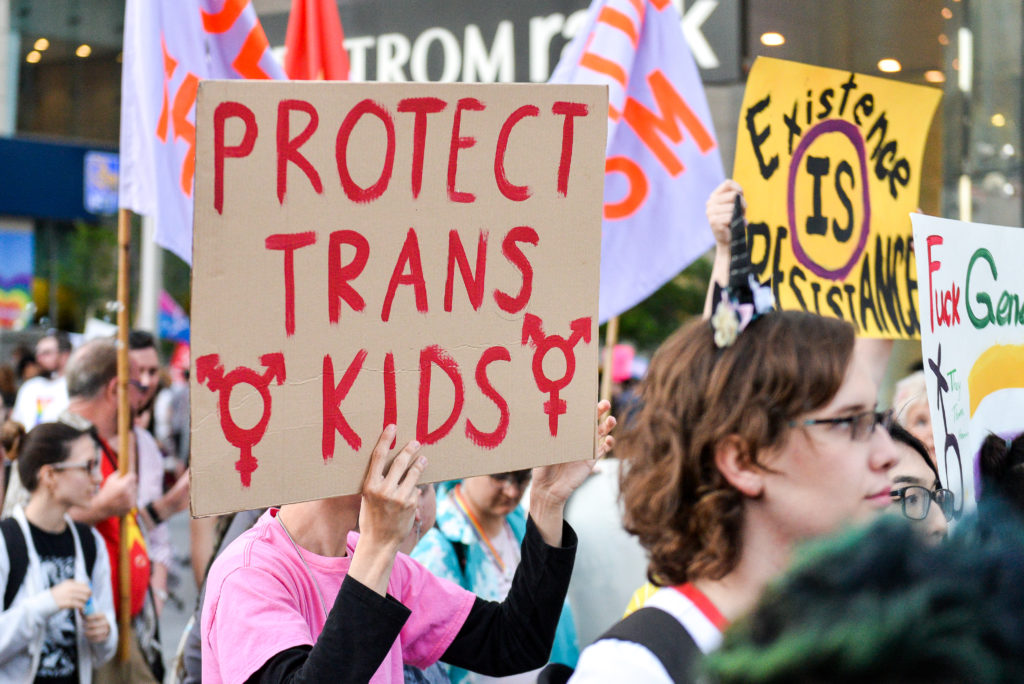There are almost no differences between young trans kids and young cis kids when it comes to the strength of their gender identity, new US research shows.
The findings from the largest-ever study of socially transitioned trans kids show that gender identity and gender-related preferences manifest similarly in both cis and trans kids.
This finding, from researchers at the University of Washington, was true even for trans kids who have only recently come out and socially transitioned (changed their name, pronouns and gender presentation in terms of clothes and hair).
The researchers found that children who identify with the gender that they were assigned at birth (cisgender children) tend to gravitate towards toys, clothing and friendships that are stereotypically associated with their gender. And in the same way, regardless of how long they have lived as their gender, trans kids also gravitate towards the toys, clothes and friends associated with their gender.
“Trans kids are showing strong identities and preferences that are different from their assigned sex,” said lead author Selin Gülgöz, who did the work as a postdoctoral researcher at the UW and will start a new position this winter as an assistant professor at Fordham University. “There is almost no difference between these trans- and cisgender kids of the same gender identity — both in how, and the extent to which, they identify with their gender or express that gender.”
The research was published in the journal Proceedings of the National Academy of Sciences, and followed more than 300 trans children in the US, as well as nearly 200 of their cisgender siblings and about 300 unrelated cisgender children as a control group.
“While in both groups there were, for example, some tomboys, on average, most transgender girls, like their cisgender counterparts, wore stereotypically feminine clothing, chose toys such as dolls to play with, preferred playing with female playmates, and identified themselves clearly as girls, and not boys,” said Kristina Olson, the study’s senior author.
“Thus the transgender group looked similar to the cisgender group in both the range of responses and the most common responses.”
The similarities among trans and cis children on the various measures were somewhat surprising, the researchers said, because trans children, unlike their cis counterparts, were for at least some of their life treated as a gender other than the one they currently identify as.
The length of time that a trans child has been treated as their gender did not seem to affect how strongly they identified with it, the researchers also found.
“We’re not seeing any increases or decreases over time in how strongly transgender children identify with their current gender,” Gülgöz said.
The study adds to previous research in this area that shows that a trans child’s gender identity is strong and consistent, whether it’s tested before or after the child has socially transitioned.
“Our data thus far suggest that the act of transitioning probably isn’t affecting gender identity one way or the other,” Olson said.
However, non-binary children were not accounted for in this study, and nor were trans people who come out later in life. The study also only included trans children who had at least some family support of their trans identity.
Whether these findings would extend to trans children whose parents refuse to affirm their gender is currently unknown, Olson cautioned.
